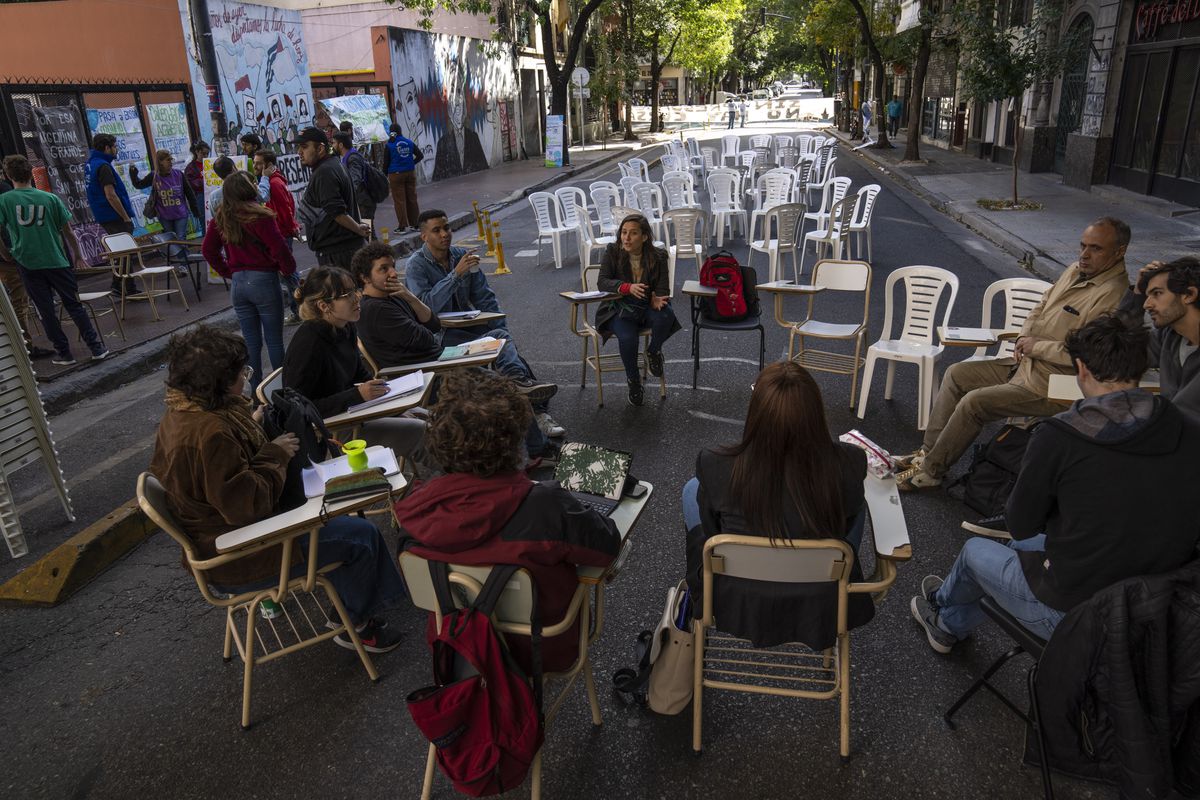Karina Niebla
04/03/2021 20:05
Clarín.com
Cities
Updated 04/03/2021 20:05
In the middle of the second wave of coronavirus, the Buenos Aires public health system has already begun to readjust: they
stopped taking shifts for non-urgent consultations
and any surgery that could be postponed is canceled or rescheduled.
It is that since last Thursday a resolution of the Buenosairean Government governs that dictates "the re-functionalization
of the services
provided in the Public Hospitals".
Beds for scheduled surgeries will be occupied by coronavirus patients.
In addition, the granting of non-urgent appointments is suspended.
"Hospital care will be aimed at responding to the
specialized demands
and
emergencies
of the population," begins the text, which from Friday, April 2, suspends the granting of scheduled appointments for face-to-face consultations for all specialties,
except medical clinic , gynecology, obstetrics, pediatrics, surgery and general traumatology
.
Consulted by this newspaper, from the Ministry of Health of the City they said that
the shifts already granted will be respected
, although they did not rule out that some are rescheduled.
Those that are given from Friday, on the other hand, are for
teleconsultations
.
They are consultations that can be made
by phone or video call
.
In the first case, the professional calls at the agreed time.
If it is through a video call, the patient uses a web application.
The guards will be active.
But hospitals will not give shifts for scheduled nonessential outpatient care.
Yes, it will grant them for teleconsultations.
Photo Andrés D'Elía
A
turn
is taken by
calling 147, then selecting option 3 and then following the instructions.
Once the date has been selected, the confirmation arrives by mail.
The appointments for non-urgent consultations are not the only ones that stopped being granted:
also those of scheduled surgeries
, except oncological, cardiovascular and "those that for medical reasons it is not advisable to extend", reads the resolution.
The same goes for taking a shift in the
laboratory or diagnostic imaging
: only extractions will be made, samples will be processed and studies with images will be made in patients who come from priority areas in the hospital and from health centers in areas not covered by Specialty Centers Reference Outpatient Physicians (CEMAR).
Spontaneous consultation appointments are held only to treat or monitor patients with health problems who cannot discontinue their care.
The
attention by general guard
also
continues
and "the operation of the
Febrile Emergency Units (UFU) will be strengthened
", today full of people who suspect they have Covid.
The Febrile Emergency Units (UFU) have long lines of people who suspect they have coronavirus.
Photo Enrique García Medina
Federico (44) had coronavirus in August and, after developing the disease, he
wanted to follow-up by teleconsultation
at the Argerich hospital, which corresponds to him because he is a neighbor of San Telmo.
He succeeded, but only after five unsuccessful attempts.
“They gave me my turn but later they
didn't call me
, or they even
gave
me a Zoom link but
the doctor never connected
.
They treated me just four months later, all to tell me that they were not looking at my studies by teleconsultation.
In the end it was all to the liking ”, laments Federico.
Those who work in the Buenos Aires public health system agree that there is still a
long way to go for teleconsultation to take hold
in this area.
“It has improved but it has a long way to go, it is just beginning.
In some hospitals it is more advanced, in others not so much.
Technology and training are needed ”, remarks Jorge Gilardi, president of the Association of Municipal Doctors (AMM) and a gynecologist at the Piñero hospital.
“Teleconsultations have been carried out, but
health personnel use their resources
: their access to the Internet, their cell phones.
The computerized system is not as developed, except perhaps in the Nutrition area ”, says doctor Fabián Lang, from the City's Assembly of Residents and Attendees.
Health personnel have been staging protests over their salary situation and lack of resources.
Photo Lucia Merle
Lang describes this resolution as "an immense work overload for health professionals in the context of a steep loss of wages, with schools open with insufficient protocols and all the rest of the sectors open."
Private health
entities
have an
advantage in the implementation of teleconsultation
, which started as soon as the pandemic began and whose use decreased slightly when presence returned.
“This modality is here to stay.
The largest number of teleconsultations was 10,000 per month, a number that dropped to just
7,000
when they returned to face-to-face before this second wave.
That speaks of how the system took hold in the private sphere ”, says Hugo Magonza, director of Cemic and member of the Directive Commission of the Argentine Union of Health Entities (UAS).
NS
Look also
Tired intensive therapies: how are the Argentine ICUs to face the second wave of Covid
Coronavirus: they order to stop testing a part of the suspected cases in the Province and there is controversy









